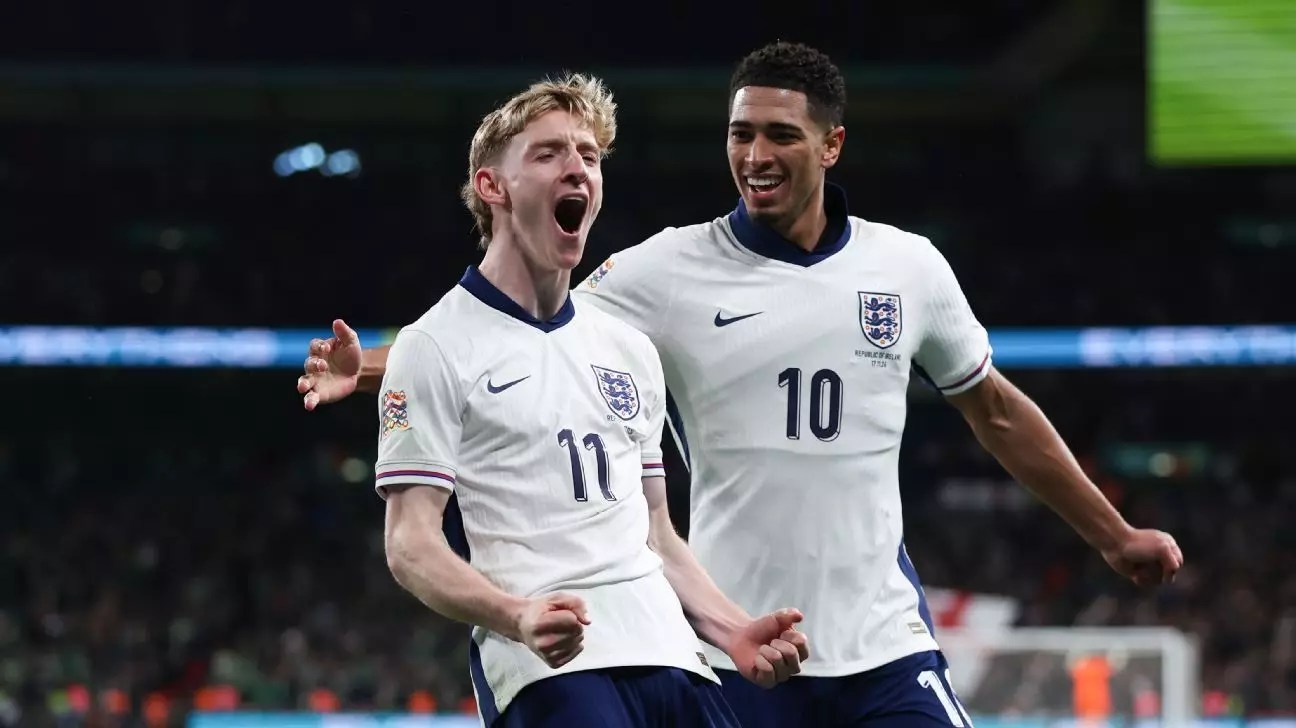England’s football landscape is on the brink of a significant transformation as Thomas Tuchel takes the helm as the new national manager. Set to commence his role on January 1, Tuchel’s primary objective is simple yet monumental: secure victory at the 2026 FIFA World Cup. With the national team’s recent 5-0 triumph over the Republic of Ireland, England has regained its status in UEFA Nations League A, allowing Tuchel to kick off his campaign with World Cup qualifiers slated for March, rather than facing the disarray of a playoff system.
Tuchel’s appointment comes after a string of promising performances led by Gareth Southgate, who guided the team to consecutive finals in the UEFA European Championship. Although Interim Manager Lee Carsley demonstrated impressive results in his short tenure, Tuchel’s arrival will undoubtedly shift the narrative. His contract, lasting just 18 months, mirrors the urgency he faces: deliver results immediately or face scrutiny.
The recent match saw goals from Harry Kane, Anthony Gordon, and others, highlighting a promising progression in the team. However, as Tuchel steps into the spotlight, he will confront several complex challenges. One immediate concern will be addressing the squad’s commitment, a sentiment Kane has vocalized, particularly in light of recent withdrawals from national duty by some players. Kane’s emphasis on loyalty reflects a deeper philosophical commitment to the national team ethos, underlining the necessity for players to prioritize international duty over club engagements.
As England’s all-time leading goalscorer, Kane’s significance cannot be overstated. However, concerns linger regarding his fitness and form, especially following a substitution that sparked debates about his place in the starting lineup. With up-and-coming talents like Ollie Watkins and Dominic Solanke pushing for more frequent appearances, Tuchel faces the critical decision of how best to integrate these players while ensuring Kane remains a pivotal figure in the squad.
Moreover, Tuchel’s tactical preferences, which lean towards fluid formations like a 4-2-3-1 or 4-3-3, may not align seamlessly with Kane’s playing style, which often sees him drop deeper into midfield to facilitate play. This discrepancy could require Tuchel to rethink strategies that accommodate Kane’s attributes while also leveraging the dynamic options presented by younger forwards.
Transitioning to a new management style poses risks, particularly concerning team morale and cohesion. Southgate was instrumental in fostering a culture that encouraged players to embrace the national team experience, steering them toward a mindset of potential rather than fear of failure. Tuchel must maintain or even enhance this environment while asserting his authority on the squad, a delicate balancing act he must execute with finesse.
Amidst speculation about potential squad reshuffling, Tuchel would be wise to maintain a core group familiar with each other’s play. The likes of Kane, Declan Rice, and Bukayo Saka, who have established familiarity with one another on the pitch, should form the backbone of the team as new players are introduced to the fray. The emphasis on retaining experienced leaders could mitigate any disruptions caused by instability during this transitional phase.
Historically, England has struggled with controlling games during high-stake matches—a pattern that led to untimely exits from major tournaments. Southgate’s teams often faltered in critical moments where composure in possession was required. Addressing this issue is paramount for Tuchel if he hopes to elevate the national side’s performance on the grand stage.
While Coaches Carsley and Kane have voiced aspirations for greater influence over matches, this ambition necessitates a metronomic presence in midfield—someone capable of dictating the pace of play. With players such as Conor Gallagher and Curtis Jones emerging, Tuchel has a budding arsenal at his disposal. Instilling confidence in these talents by orchestrating gameplay around their strengths will be crucial for achieving sustained success.
As excitement mounts for Tuchel’s inaugural campaign, the dual expectations of immediate results and long-term development weigh heavily on his shoulders. His short-term contract indicates the intensity of the ambition to clinch the World Cup rather than the exploration of youth potential. This focus on winning might drive a tactical and strategic reshaping of the squad, as Tuchel delineates between those who can contribute immediately and those whose time may come later.
In areas like the left-back position, where Southgate oscillated in selection to mixed results, identifying a dependable first-choice option remains a priority. The emergence of players like Levi Colwill and Kieran Trippier offers Tuchel alternatives; however, consistency and match fitness will be integral to forming a balanced defensive line.
As England embarks on this new chapter, Tuchel embodies a fascinating intersection of immediate goals and the broader narrative of English football. With a wealthy pool of talent at his disposal and the limelight of the World Cup beckoning, the next few years could see either a blossoming of national pride or yet another cycle of unfulfilled potential. The road ahead is fraught with challenges, but also filled with possibilities that could redefine England’s footballing future.


Leave a Reply